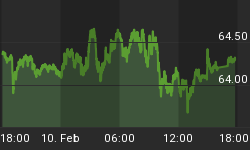While it should come as no surprise given the high level of digital propaganda prowess coming out of the Gulf region, Facebook is now making it clear that it’s platform has been used for covert Saudi campaigns to prop up the Kingdom and attack enemies. In response, the social media giant has suspended more than 350 accounts and pages said to be connected to figures tied to the Saudi government.
The pages in question, largely run by a pair of marketing firms in the UAE and Egypt, had almost 1.4 million followers and had spent $167,000 on ads.
It remains unclear how many of those followers were real and how many were fake.
In a statement, Facebook said the suspensions represented an effort to tackle "coordinated inauthentic behavior" on its platform and on Instagram, which is owned by FB.
"The Page admins and account owners typically posted in Arabic about regional news and political issues, including topics like the Crown Prince Mohammad bin Salman, his economic and social reform plan 'Vision 2030', and successes of the Saudi armed forces, particularly during the conflict in Yemen," Facebook's head of cybersecurity policy, Nathaniel Gleicher said.
The suspended pages also shared criticism of Saudi rivals Iran, Qatar and Turkey.
In the past few years, social media companies have come under increasing pressure to help stop illicit political influence online.
Following Russia’s attempt to influence voters during the 2016 U.S. presidential election, the issue has grown in significance, and Facebook in particular has found itself under high-level scrutiny.
Russia-based pages published some 80,000 posts during the election campaign, and they were viewed by as many as 126 million Americans, according to Reuters.
Related: Mining Major Sets Aside $400 Million To Reduce Emissions Recently, Facebook has also taken action against Russia and Iran.
Last year, Google banned more than 80 YouTube channels said to be connected to Russian and Iranian attempts to spread misinformation.
Twitter has also suspended 284 accounts for engaging in coordinated manipulation. Many of the removed accounts appeared to have been created in Iran.
Saudi Arabia has never been a part of this targeted backlash--until now. They were largely off limits, and this is the first time FB (or any other social media) has revealed any Saudi-linked efforts to spread disinformation on its platform.
It’s not surprising, though, given the drive by the Saudi Crown Prince to repair his reputation in the aftermath of the brutal execution of one of his critics, Saudi journalist Jamal Khashoggi.
Under the Crown Prince Mohammad bin Salman (MBS), the kingdom is trying to portray itself as less conservative and more open to reform. The Crown Prince has invested millions of dollars on reputation, but without the help of social media it will be difficult to convince the world that he is a liberal reformer.
MBS is putting on a good front, including lifting a 35-year ban on cinema, ending a ban on women driving and ostensibly curbing the powers of the religious police.
Most recently, a new law went into effect on Friday allowing women to apply for passports and travel without permission from a male relative.
It’s all part of the Vision 2030 program, which includes entertainment. With 70 percent of the Saudi population under the age of 30, the Kingdom is having a hard time coming to grips with the fact that they are spending $20 billion overseas every year seeking entertainment they can’t get at home.
Related: Climate Change Turns Mammoths Into $40M Market
During a visit to the U.S. last spring, MBS landed deals with several American entertainment agencies, including AMC, America's biggest movie theater company, and World Wrestling Entertainment. It also signed a $400-million contract with talent agency Endeavor, but the company returned the money and backed out over the Kingdom’s human rights violations.
None of it’s gotten off to a terribly auspicious start, and Khashoggi keeps coming back to haunt reputation.
Facebook would have helped to propagate a different picture--one of a liberal reformer, but the social media giant isn’t playing ball.
However, with US-Saudi relations--at least when it comes to the Trump administration--at an all-time high despite Khashoggi, one wonders whether Facebook’s Saudi purge is actually meant to hit out at Washington at a time when the ‘preferred’ targets are Russia and Iran.
By Tom Kool for Safehaven.com
More Top Reads From Safehaven.com

















